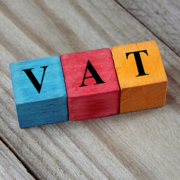Vacant Homes Tax & Pre-Letting Expenses

A new Vacant Homes Tax (VHT) was introduced in Budget 2023. The primary objective of this is to increase the availability of housing, but landlords need to be aware of the restrictions on allowable pre-letting expenses when calculating their rental profits.
Vacant Homes Tax (VHT)
VHT applies to residential properties which have been occupied for less than 30 days in a chargeable period.
VHT is calculated at three times the residential property’s local property tax (LPT) liability.
The following will be exempt from the VHT:
- Properties recently sold or listed for sale or rent.
- Properties vacant due to illness or long-term care of the occupier.
- Properties which were the principal residence of a deceased chargeable person in either the chargeable period or in the 12-month period prior to the commencement of the chargeable period.
- Properties which were the principal residence of a deceased chargeable person where a grant to administer the estate issues in the chargeable period and for any chargeable period following such a grant, where the administration of the estate has not yet completed.
- Properties which are vacant due to significant refurbishment work.
The first chargeable period runs from 1 November 2022 to 31 October 2023.
A VHT return will be due by 7 November 2023, with the tax payable by 1 January 2024.
Pre-Letting Expenses
In determining the taxable rental profits from the letting of residential property, a landlord may claim a deduction for the following expenses:
- Private Residential Tenancies Board (PRTB) registration.
- Insurance premiums.
- Maintenance & repairs – e.g., cleaning, painting and decorating, general property maintenance.
- Property fees – e.g., management fees, letting advertising, legal or accountancy fees.
- Costs not repaid by tenant – e.g., light & heat costs.
- Capital allowances on qualifying capital items – e.g., furniture, white goods.
However, with the exception of property-related fees such as letting or legal fees incurred on the first letting, a deduction is not permitted for expenses incurred prior to the first letting of the property.
The Finance Act 2017 sought to address the above and introduced an allowable deduction of up to €5,000 for certain pre-letting expenses incurred on vacant residential properties. From 1 January 2023, this cap on the authorised deduction has been increased to €10,000 and the specified period for which the property was vacant has been reduced from twelve to six months. The landlord must incur the expenditure during the twelve months prior to first letting the property.
If the landlord ceases to let the property within four years, the deduction for the pre-letting expenses will be clawed back in the year in which the property ceases to be let as a residential property. Importantly, a clawback will be triggered if there is a change of use from residential or if the property is sold.
If you need any assistance with VHT or Pre-Letting Expenses, please contact Niall Grant, Partner in our Tax Services’ Department.








